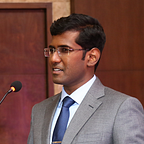Deep Work
Cal Newport is a computer science professor at GeorgeTown University, author, blogger and is obsessed with productivity. He writes on this topic in his popular Study Hacks blog. I was introduced to him and his work after I read an article of his in the New York Times where he argued that passion was overrated in picking a career and that it would follow in time if you focus on achieving mastery.
Deep Work is his latest book and is a summarisation of many blog posts on the importance of focus in the workplace. For the uninitiated, deep work refers to activities performed in a distraction-free state that push your cognitive capabilities to their limit. By contrast, shallow work refers to tasks that can easily performed while distracted i.e email, non essential meetings etc. So why then do so many spend so much time on shallow work? The answers are some of my favourite lines in the book — a) Deep work gets you promoted while shallow work keeps you from getting fired and b) Busyness is often used incorrectly as a proxy for productivity. The second one will sting those of us (myself included) who take pride in spending the day attending meeting and always being available through chat, email and phone throughout the day.
Part 1 of the book focusses on why deep work is valuable while the second part is spent on detailing ways to get more productive. As with the last book I blogged about, this is not a book to read and move on. It’s essential to put it into practice if you agree with it and hope to benefit from it. Cal argues that focus is a skill to be practised and will not come naturally to many of us who are used to multitask endlessly. Some tips for focussing on deep work are to avoid social media and to avoid working after you leave the workplace. The most intriguing one to me was the idea of embracing boredom. Cal argues that the constant switching of tasks at the slightest hint of boredom teaches your mind to never tolerate boredom. Hence he argues against checking your smartphone when you are in a queue at a store or eating alone, instead he advises that you learn to be bored. He is also a big fan of structure and recommends planning your workday in hourly blocks.
In the past I have written about the trend especially in software firms towards open offices. Cal abhors this trend and cites research that shows that such environments made it hard to focus. This puts him at odds with those such as Steven Johnson, Facebook, Google who argue that multitasking and open offices encourage innovation. Cal suggests a compromise using a hub and spoke model for a perfect workplace. While offices need to have spaces where people regularly meet and exchange ideas (hubs), they also need private areas (spokes) to focus.
One of the critiques of the book is that the advice is much more applicable to those in academia than to those in management positions. Nevertheless, there is a lot of good advice in there and I plan to try out a few things that the book recommends and I will report back on my progress in a few months from now.
